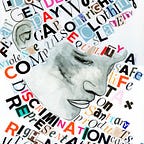Upcoming Workshop: How can Open Heroines “Cook Data” with Feminist Recipes?
This short course proposes a space for Open Heroines members to explore the connection between feminism and data through two independent but interconnected sessions, the first on Feminism(s) and the second on Feminism and data.
The aim of the course is for Open Heroines to achieve a more rounded understanding of feminism and feminist approaches to knowledge-making, particularly in relation to data.
The course will be delivered by Helena Suárez Val who is an activist, researcher, and producer focused on digital communications, data, human rights, and feminism. She is also a member of Open Heroines.
Background
The production of data has been crucial in highlighting and combating issues that affect women in all their diversity, such as violence against women and femicide, limits to sexual rights, reproductive rights and abortion, racism and discrimination, unequal political participation, labour inequality and care responsibilities, environment and climate crisis, etc.
From a feminist perspective, it is an oxymoron to talk about “raw data”, since data is “always cooked”. But, what is a feminist perspective?
Feminism is a (plural, diverse, and, sometimes, conflicted) social movement, practice, and theory. As a movement, it encompasses a myriad of actors — activists, groups, civil society organisations, political campaigns — who denounce, challenge, and work to dismantle gendered power structures that, intersecting with other oppressions such as race and class, maintain inequalities and privilege men over women and gender dissidents. As a practice, ‘’feminism must be lived’’, according to Sara Ahmed, which implies ‘’being attentive to power relations at home and at work, being willing to challenge abuses of power, being willing to support those who are challenging abuses of power.” As a theory, feminism is a radically interdisciplinary project; a critical outlook, an interpretive attitude, and a knowledge-making proposal that attends to power to question disciplinary practices, suppositions, and objects of study.
What does this understanding of feminism(s) mean for working with data? How can Open Heroines “cook” data with feminist recipes? This course will introduce us to some of the main issues, concerns, and questions in relation to feminism and data.
Structure of The Course
Session 1: Feminism(s)
In the first session, we will focus on approaching feminism through the following questions:
- What are the subjects of feminism(s)?
- What are some of the key issues for feminism?
- How does feminism challenge knowledge-making practices?
- What does a feminist analysis of power (with data) look like?
In this session, students will learn about the plurality of feminism(s), as well as definitions of key concepts, such as gender, intersectionality, and the feminist critiques of objectivity.
This session will be held on Friday, April 28, 2023, at 1pm UTC.
Session 2: Feminism and data
In the second session, we will focus more specifically on feminism and data, tackling the following questions:
- What is data?
- How can we apply a feminist perspective in data production, analysis, and communication?
Students will be introduced to the principles of ‘data feminism’ (D’Ignazio & Klein, 2020), particularly contextual and intersectional analysis, through the example of feminicide data.
This session will be held on Friday, May 12, 2023, at 1pm UTC.
Learning Outcomes
By completing this training, students will learn about key concepts and issues in feminist thinking and practice, including gender and intersectionality, and will be able to apply a feminist perspective to the work of collecting, processing, and analysing data.
Each session will last 1.5 hours and will include learning material, a presentation and an opportunity for interaction.
Kindly register for the workshop here.
About Helena Suárez Val
Helena Suárez Val is an activist, researcher, and producer focused on digital communications, data, human rights, and feminism. She has worked as a web developer and communications specialist in London, Johannesburg, and Montevideo, for organisations such as Amnesty International’s International Secretariat, the Global Call to Action against Poverty, and Cotidiano Mujer.
She holds MAs in Gender, Media and Culture (Goldsmiths, University of London) and Social Science Research (University of Warwick) and is currently a doctoral candidate at the Centre for Interdisciplinary Methodologies, University of Warwick. With Catherine D’Ignazio and Silvana Fumega, she co-leads Data Against Feminicide, an action-research project that aims to understand and support the work of the feminicide data community of practice. In 2022, she led a three-month course entitled Data Against Feminicide: Theory and Practice (with Catherine D’Ignazio) and a session on feminicide, data, and activism, as part of a course on measurement of gender-related violence against women and feminicide organised by CLACSO and ECLAC. She has been recording and caring for feminicide data for Uruguay since 2015, at feminicidiouruguay.net.
